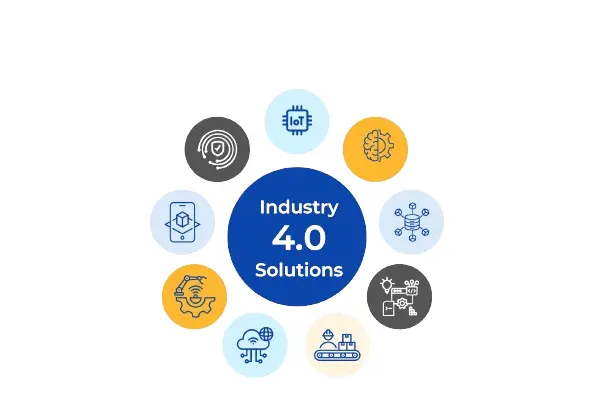Introduction:
In times of crisis or disaster, effective logistics planning and management are essential for ensuring the timely and efficient delivery of critical supplies and services to affected areas. This 5-day course is designed to provide participants with a comprehensive understanding of emergency logistics planning and management principles, strategies, and best practices. Through a combination of theoretical lectures, case studies, interactive discussions, and practical exercises, participants will learn how to develop emergency logistics plans, coordinate response efforts, and mitigate logistical challenges during emergencies and disasters. By the end of the course, participants will be equipped with the knowledge and skills necessary to effectively manage logistics operations in emergency situations and contribute to disaster response and recovery efforts.
Target Audience:
Emergency Response Teams, Disaster Management Professionals, Logistics Managers, Supply Chain Managers, Government Officials, and individuals involved in planning, coordinating, and managing logistics operations during emergencies and disasters.
Duration:
5 days
Course Level:
Course Objectives:
Upon completion of this course, participants will be able to:
- Understand the role and importance of emergency logistics planning and management in disaster response and recovery.
- Identify key components of emergency logistics planning, including preparedness, response, and recovery.
- Develop emergency logistics plans aligned with organizational goals and objectives.
- Coordinate logistics operations during emergencies, including transportation, warehousing, and distribution.
- Implement strategies for managing logistical challenges in emergency situations, such as resource constraints, infrastructure damage, and communication disruptions.
- Utilize technology and data analytics to optimize emergency logistics operations and decision-making.
- Collaborate with government agencies, NGOs, and other stakeholders in emergency logistics coordination.
- Develop contingency plans and risk management strategies for emergency logistics operations.
- Understand legal and regulatory frameworks governing emergency logistics activities.
- Develop an action plan for implementing effective emergency logistics planning and management practices in their organization.
Course Outline:
Module 1: Introduction to Emergency Logistics Planning
- Overview of emergency logistics planning principles and concepts
- Role of logistics in disaster response and recovery
- Legal and regulatory frameworks for emergency logistics operations
- Key components of emergency logistics planning: Preparedness, response, and recovery
- Case studies: Analyzing successful emergency logistics planning efforts
Module 2: Emergency Logistics Preparedness
- Conducting risk assessments and vulnerability analyses
- Developing emergency logistics plans and procedures
- Establishing coordination mechanisms and communication channels
- Pre-positioning of emergency supplies and equipment
- Establishing partnerships with government agencies, NGOs, and other stakeholders
- Practical exercises: Developing emergency logistics plans
Module 3: Emergency Logistics Response
- Coordinating logistics operations during emergency response efforts
- Assessing transportation and infrastructure damage
- Establishing temporary warehousing and distribution centers
- Managing logistics resources and assets in emergency situations
- Utilizing technology and data analytics for real-time logistics tracking and monitoring
- Case studies: Coordinating logistics response efforts in different disaster scenarios
Module 4: Emergency Logistics Recovery
- Assessing logistics needs and priorities during the recovery phase
- Implementing strategies for restoring transportation and infrastructure networks
- Addressing supply chain disruptions and bottlenecks
- Rebuilding inventory levels and supply chains
- Implementing lessons learned and best practices from emergency logistics response efforts
- Practical exercises: Developing recovery plans and strategies
Module 5: Contingency Planning and Risk Management
- Developing contingency plans for emergency logistics operations
- Identifying and mitigating risks in emergency logistics activities
- Ensuring compliance with legal and regulatory requirements
- Review of course materials and key takeaways
- Developing a personal action plan for implementing effective emergency logistics planning and management practices
Related Courses
Course Administration Details:
METHODOLOGY
The instructor-led trainings are delivered using a blended learning approach and comprise presentations, guided sessions of practical exercise, web-based tutorials, and group work. Our facilitators are seasoned industry experts with years of experience, working as professionals and trainers in these fields. All facilitation and course materials will be offered in English. The participants should be reasonably proficient in English.
ACCREDITATION
Upon successful completion of this training, participants will be issued an Indepth Research Institute (IRES) certificate certified by the National Industrial Training Authority (NITA).
TRAINING VENUE
The training will be held at IRES Training Centre. The course fee covers the course tuition, training materials, two break refreshments, and lunch. All participants will additionally cater to their travel expenses, visa application, insurance, and other personal expenses.
ACCOMMODATION AND AIRPORT PICKUP
Accommodation and airport pickup are arranged upon request. For reservations contact the Training Officer.
- Email: [email protected]
- Phone: +254715 077 817
TAILOR-MADE
This training can also be customized to suit the needs of your institution upon request. You can have it delivered in our IRES Training Centre or at a convenient location. For further inquiries, please contact us on:
- Email: [email protected]
- Phone: +254715 077 817
PAYMENT
Payment should be transferred to the IRES account through a bank on or before the start of the course. Send proof of payment to [email protected]
Click here to register for this course.
Register NowCustomized Schedule is available for all courses irrespective of dates on the Calendar. Please get in touch with us for details.
Do you need more information on our courses? Talk to us.










